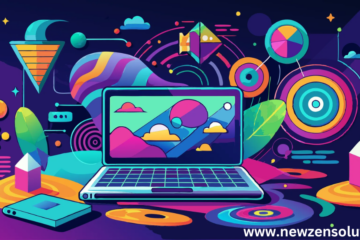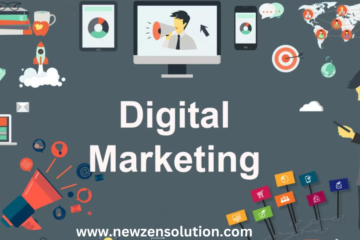What Will Happen to Marketing in the Age of AI?
In today’s hyper-connected world, the fusion of artificial intelligence (AI) and marketing is reshaping the industry landscape. AI is not just a futuristic tool; it is already revolutionizing how brands engage, convert, and retain customers. From hyper-personalized content to predictive analytics, AI offers endless opportunities for marketers to innovate, scale, and optimize their strategies.
In this article, we’ll explore the transformative impact of AI on marketing and discuss how businesses can adapt to thrive in this era of intelligent automation.
The Rise of AI in Marketing
AI is no longer confined to chatbots and automated emails. It is becoming the backbone of modern marketing strategies. According to industry reports, AI-driven marketing tools are expected to account for a significant portion of marketing budgets within the next decade.
Why AI Matters in Marketing
- Efficiency: AI handles repetitive tasks, freeing marketers to focus on creative strategies.
- Precision: AI analyzes massive datasets to provide actionable insights.
- Personalization: AI customizes user experiences at an unprecedented scale.
Transformative Applications of AI in Marketing
1. Hyper-Personalized Campaigns
AI uses data like browsing habits, purchase history, and demographic information to craft campaigns tailored to individual preferences. Brands like Amazon and Netflix lead the way in offering recommendations that feel personal.
Key Benefits:
- Improved customer satisfaction
- Higher engagement rates
- Increased conversions
2. Predictive Analytics
Predictive analytics powered by AI enables marketers to forecast customer behavior and trends. This allows companies to make proactive decisions, optimizing inventory, pricing, and marketing channels.
Example:
Retailers use AI to predict seasonal shopping trends, ensuring stock availability aligns with demand.
3. AI-Driven Content Creation
AI tools like ChatGPT and Jasper AI are transforming content marketing. From generating blog posts to creating video scripts, AI reduces the time and resources needed for content production.
Key Features:
- Keyword optimization
- Readability enhancement
- Real-time updates
4. Automation of Marketing Operations
AI automates tasks such as:
- Email marketing campaigns
- Social media scheduling
- Ad placement optimization
This reduces manual intervention, ensuring faster turnaround and more consistent execution.
5. Enhanced Customer Interaction
AI-powered chatbots and virtual assistants are transforming customer service. These tools provide instant support, resolve queries, and improve user satisfaction.
Example:
Chatbots integrated into e-commerce platforms help users with product searches, ensuring a smoother purchase journey.
Challenges in AI-Driven Marketing
Despite its potential, AI adoption comes with challenges.
1. Data Privacy Concerns
With AI relying heavily on user data, brands must prioritize data protection to maintain customer trust.
2. High Initial Investment
Implementing AI tools can be expensive, making it challenging for smaller businesses to adopt.
3. Ethical Considerations
AI can perpetuate biases present in data, leading to unintended consequences in marketing campaigns.
Solution:
Brands must establish ethical AI frameworks to mitigate risks.
The Future of Marketing in the Age of AI
1. Seamless Omnichannel Experiences
AI will enable brands to create cohesive experiences across all customer touchpoints, from websites to mobile apps and physical stores.
2. Real-Time Personalization
Shortly, personalization will evolve from static to dynamic, adjusting content and offers in real-time based on user interactions.
Example:
E-commerce sites may offer real-time discounts to users hesitating at checkout.
3. Voice and Visual Search Optimization
As voice and visual search grow in popularity, AI will help marketers optimize their content for these platforms.
Tip for Marketers:
Focus on schema markup and image metadata to enhance visibility in voice and visual search.
4. AI-Powered Influencer Marketing
AI can analyze influencer metrics, engagement rates, and audience demographics to identify the best-fit influencers for brand collaborations.
5. Emotion AI
Emotion AI analyzes customer emotions through facial expressions, voice tones, or text. This enables brands to gauge real-time customer sentiment and tailor interactions accordingly.
How Brands Can Adapt to AI-Driven Marketing
1. Embrace Continuous Learning
Invest in AI training programs for your marketing team to stay ahead of technological advancements.
2. Collaborate with Experts
Partnering with AI consultants or agencies can help streamline the integration of AI tools into your marketing strategy.
3. Test and Optimize
AI thrives on data. Regularly test campaigns, gather feedback, and optimize strategies to maximize ROI.
How New Zen Solution Can Help You Leverage AI
At New Zen Solution, we specialize in integrating cutting-edge AI tools into marketing strategies, helping businesses achieve unparalleled growth.
Our Services Include:
- AI-powered analytics and reporting
- Tailored automation solutions
- Personalized content marketing strategies
- Ethical AI implementation for data privacy
By partnering with us, your business can stay ahead of the curve in this AI-driven landscape.
Conclusion
AI is not just transforming marketing—it’s redefining the industry. As businesses harness their potential, the focus should remain on creating customer-centric strategies that are ethical, efficient, and innovative. Brands that embrace AI early will not only stay relevant but also lead the way in shaping the future of marketing.
Let New Zen Solution guide you in navigating this exciting era of AI-driven possibilities.




